Description
ABSTRACT
Ungoverned Spaces, a Safe Haven for Crime? Enhancing Cyber-Security in an Information Age, the Role of Judges
Obinne C. Obiefuna*
Cyber insecurity has been the bane of Nigeria’s reputation in the millennial age. It has hampered Nigeria’s standing in the international scene among nations. Accordingly, legislative solutions have been devolved to combat cybercrime in Nigeria. The Cybercrime Prohibition Prevention Act 2015 was enacted to check the excesses of Nigerians on the World Wide Web. This Act must be revised, as Nigeria ranks third in cybercrime offences after Russia and the United States. Going through the academic literature, law enforcement officers’ role in eradicating cybercrime is analysed vigorously with less emphasis on the role of judges in the fight against cyber criminality. Using a doctrinal approach, the article analyses the roles of judges as stakeholders in curbing cyber criminality. It
seeks to identify the obstacles hindering their influential role in curbing cybercriminals. The article finds that challenges, ranging from lack of tech knowledge and use of social media evidence to age-old judicial independence issues like judicial courage, hamper the participation of judges in the fight against cybercrime. Training the judges on these sophisticated crimes will help eradicate cyber criminality in Nigeria. The insights in this article will assist Nigeria in developing a working policy for building a cyber-resilient ecosystem.
Keywords: Ungoverned Cyber Spaces, Cyber Security, Information Age, Role of Judges.
INTRODUCTION
The notion of the internet as an ungoverned space has raged since the late twentieth Century. In its infancy, the internet was celebrated as a liberating force. DR Johnson and DG Post stated that the internet’s decentralised structure makes it uncontrollable by governments and is a new space devoid of legal institutions and control. 1’Information wants to be free’2 was the slogan. Joel Reidenberg also believed governments should not have a say in governing the internet.3 The courts reflected this optimism, noting the role of the internet in facilitating communication in a democratic society. In ACLU v Reno,4 Justice Paul Stephens opined:
*LLB, LLM(Essex), PhD (Nig) LLM(Essex). Lecturer, Department of International and Comparative Law Faculty of Law, University of Nigeria.
- Dr Johnson and DG Post, ‘Law and Borders – The Rise of Law in Cyberspace’, (1996) accessed 10 January 2023
- JP Barlow, ‘Selling Wine Without Bottles: Economy of Mind on the Global Net’ (March 1994 accessed 10 January 2023.
- Joel Reidenberg, ‘The Formulation of Information Policy Rules through Technology’ , (1998), Lex Informatica Texas L. Rev 76 553- 593. [1997] 521 US 844

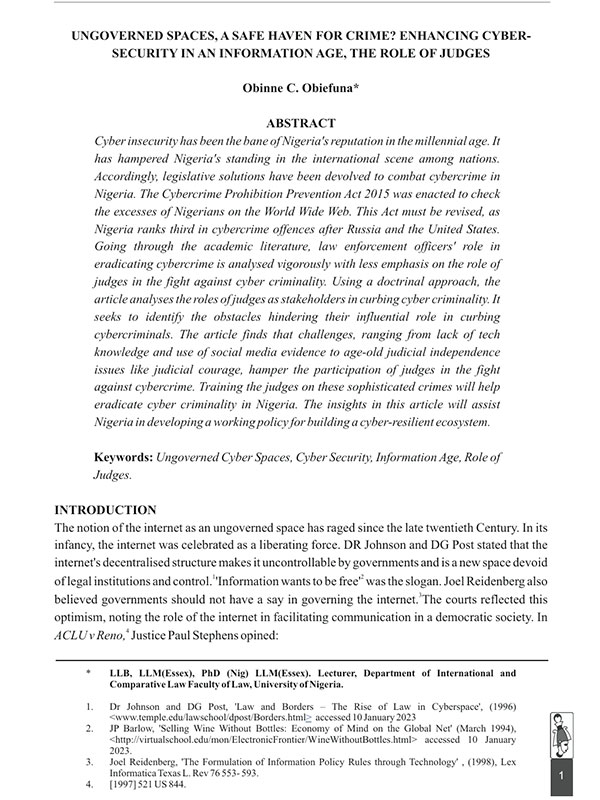
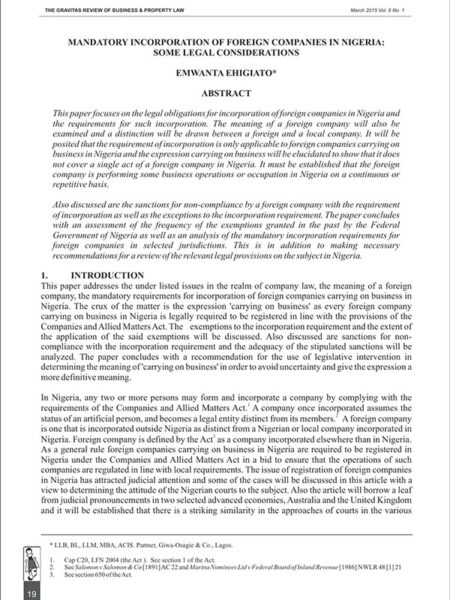
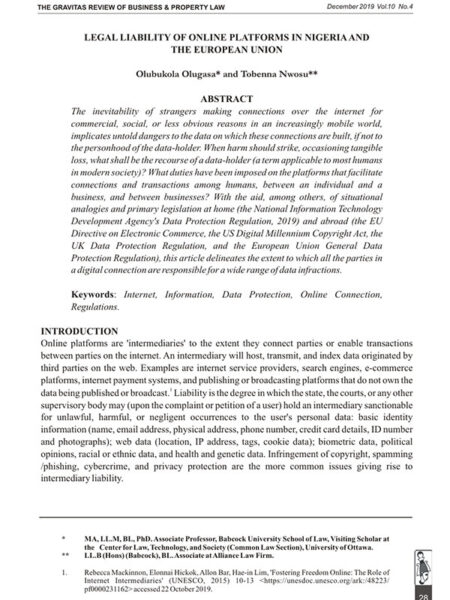
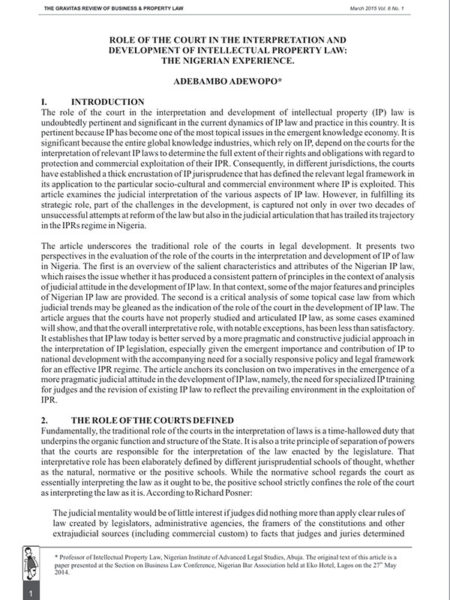
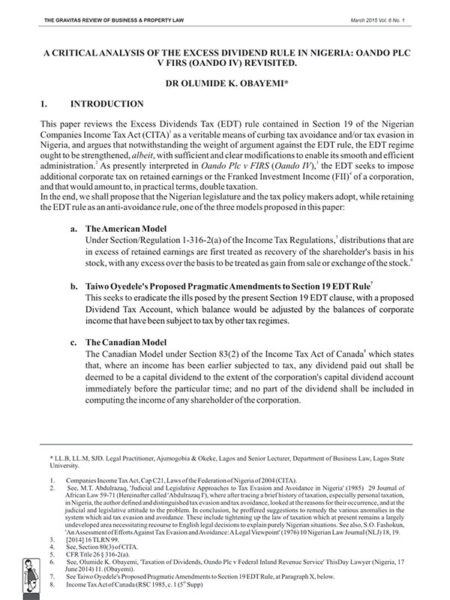


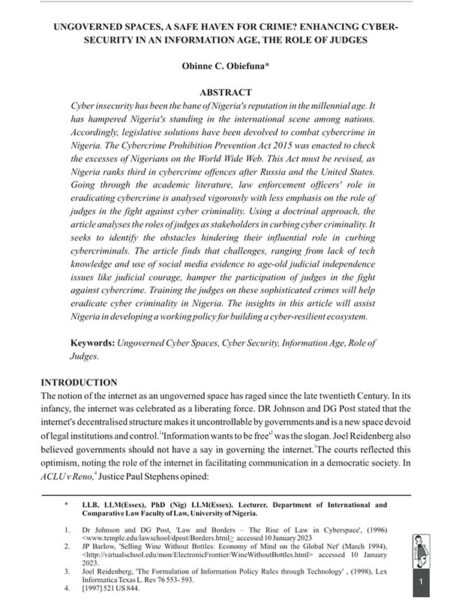
Reviews
There are no reviews yet.